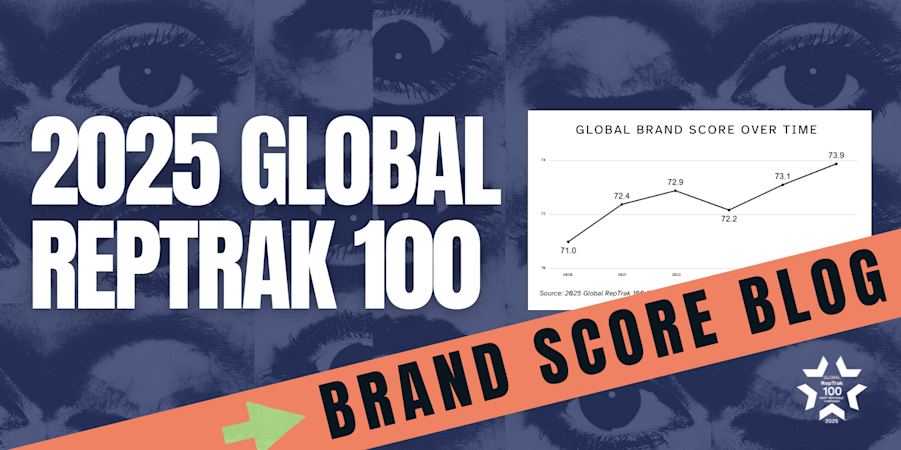3 Reasons Why Purpose Matters for Business
Blog Post29 Oct, 2019
What purpose does a company serve?
Traditionally, the answer would have been a no-brainer:
(a) delivering on products and services to customers, (b) focusing on growth and profitability, and (c) keeping investors happy
But increasingly, businesses have come to the realization that these cornerstones are no longer sufficient to gain a competitive advantage in the marketplace. A variety of stakeholders, well beyond merely investors, are looking beyond the bottom-line.
Here’s what we know about purpose:
1. Purpose is on the minds of CEOs.
In his 2019 letter to CEOs, Blackrock CEO Larry Fink writes,
“Purpose is not the sole pursuit of profits but the animating force for achieving them. Profits are in no way inconsistent with purpose—in fact, profits and purpose are inextricably linked."
Fink’s stance has sparked a revolution of sorts. While many revered his letter as a testament to diversity and inclusion in the workplace, others argue against what they negatively call “corporate socialism,” accusing Fink and other executives for using their own corporate platforms to advance personal agendas.
The conversation regarding purpose continued in August when the Business Roundtable, a group of 181 CEOs of U.S. companies (including Apple, Amazon, General Motors, Whirlpool), released a statement redefining the purpose of a corporation. As part of the statement, these prestigious company leaders committed to five tenets of doing business:
Delivering customer value
Investing in employees
Dealing fairly and ethically with suppliers
Supporting local communities with an emphasis on sustainability
Providing long-term value for shareholders
Three out of the five of these tenets directly reflect the three business drivers of reputation underlying corporate responsibility (Workplace, Governance, and Citizenship). We have here an expanded view of what businesses ought to focus on, or in the words of Business Roundtable member Tricia Griffith, President and CEO of Progressive Corporation:
“CEOs work to generate profits and return value to shareholders, but the best-run companies do more. They put the customer first and invest in their employees and communities. In the end, it’s the most promising way to build long-term value.”
2. Higher Purpose is 2019’s top reputation driver among Corporate Communications executives, globally.
Our research has long demonstrated that other factors, such as Governance, Citizenship, Leadership and, Workplace performance play key roles in both shaping companies’ reputations and ultimately business success.
In 2019, purpose is the #1 most important topic for Chief Communications Officers globally, as they try to manage and improve their reputation and help their companies thrive. At the beginning of the year, we surveyed top-level executives in corporate communications and concluded that these are the top 10 macro-trends driving reputation:
Higher Purpose
Cyber-Attacks / Data Privacy
Market Influencers
Employer of Choice
CEO Activism
Fake News
Nationalism vs. Globalism
Political Polarization
Female Empowerment
Trade Tariffs
As evidenced by this survey, corporate leaders are aware that stakeholders want to know what companies and their leaders stand for, what values they espouse, and what positions they advocate for in the case of many socio-political, economic, and environmental issues.
Investors and credit agencies are increasingly considering companies’ engagement (or lack thereof) in ethical business practices or sustainable production and sourcing of products, when assessing risk and credit-worthiness. Employee activism around workplace conditions is helping to shine a very public spotlight on perceived shortcomings in these domains.
3. Purposeful action is working.
While the five commitments publicized by the Business Roundtable are fairly general in nature, businesses have become increasingly vocal about what specific issues they align with and which ones they disavow, despite the risk of alienating segments of existing or potential customers. These public stands have spanned a variety of topics, such as gun control, immigration policy, minimum wage, climate change, emission controls, and abortion rights.
The most prominent of companies to recently publicize its view is online retail giant Amazon. The company clarifies to its stakeholders that, among other things, it supports:
Increasing the federal minimum wage
Action on climate change
Protection of LGBTQ+ people and immigrant rights
Equal access to technology
Diversity and inclusion
Data privacy
Tax regulation promoting economic investment and job creation
While Amazon’s traditional mission, vision, value, and leadership statements show a company that is committed to innovating around easy access to competitively priced products/services, this recent position expands to include a strong dedication to diversity, inclusion and broader societal and environmental contributions.
Other companies already leading the charge in purpose include:
The LEGO Group
“Our ultimate purpose is to inspire and develop children to think creatively, reason systematically, and release their potential to shape their own future - experiencing the endless human possibility.”
Natura
“We’re committed to making a difference to the planet and to people. By sustainably sourcing our ingredients, promoting fair trade without suppliers, always being against animal testing, and championing ethical beauty. We share a common purpose to be a force for good.”
Purpose Demands We All Walk the Walk
It is one thing to share a purpose statement. It is quite another to take action on that purpose and then effectively communicate those actions. Based on analyses of over 200 brand entities and over 17K ratings in the U.S., early insights suggest not only suggest that purposeful companies have a higher reputation and enjoy greater support, but that the ways in which they activate and enact their purpose are critical in further shaping their reputation among stakeholders.
To be successful, corporate leadership teams must consider the following:
Is your company’s messaging around its purpose clear and familiar?
Does your company’s purpose align with the values and objectives of your audience?
How does your purpose differentiate your company from competitors?
Are your company’s past actions aligned with its current purpose?
Is your purpose future-focused? Will it stand the test of time?
Finding and delivering on purpose is not easy, but data is showing that it remains essential for companies aiming to grow and to sustain. As companies continue to shift from purely profit-oriented in their objectives, we will have to see how purpose impacts longevity.
Sven Klingemann, PhD Research Director The RepTrak Company [email protected]






